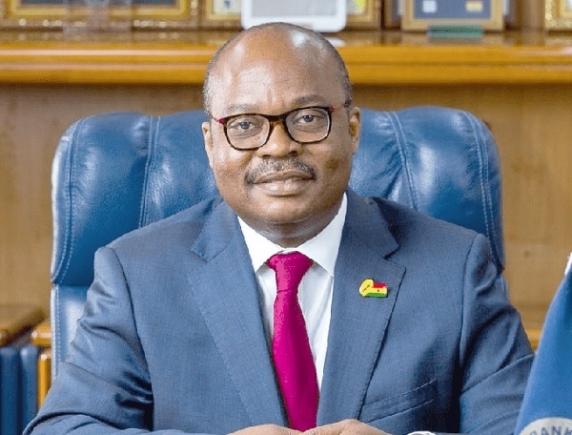
Crucial MPC meeting begins today — Policy rate to dominate discussions
The Monetary Policy Committee (MPC) of the Bank of Ghana will begin its first meeting for the year today, to consider developments in the global economy, domestic economic conditions and deliberate on the appropriate monetary policy stance.
With the policy rate at 27 per cent and inflation closing the year at 23.8 per cent as against an end-year target of 15 per cent and 18 per cent set by the government and the BoG respectively, the determinants of the benchmark interest rate are expected to dominate discussions at the meeting.
Giving its reasons for maintaining the policy rate at 27 per cent to end the year 2024, the BoG at its final meeting, explained that inflation projections showed a slightly elevated profile driven by high and unstable food prices, pass-through of previous exchange rate pressures, fuel prices and utility tariff adjustments.
It observed that price increases in food items had been steep in the period under review, together with a fast-paced depreciating currency earlier in the year. These developments, altered the inflation trajectory and stalled the disinflation process.
It also referenced the September 2024 MPC meeting saying, the average inflation forecast a year ahead which stood at 19.0 per cent had increased slightly to 20.1 per cent at the forecast round.
Accordingly, BoG explained that the horizon for inflation to get back within the target band of 6-10 per cent had slightly shifted forward to Q42025 from the original forecast period of Q32025.
In the near term, strengthening of the currency will augur well for future price developments, hence the decision to keep the policy rate unchanged at 27 per cent.
Prevailing conditions
Unfortunately, however, the conditions which were used to maintain the policy rate at 27 per cent at the end of November last year, persist or have slightly worsened.
Inflation, for instance, has climbed from 23 per cent in November 2024, to 23.8 per cent at the end of December 2024, again on the back of rising food prices.
The cost of crude oil on the international market has risen, forcing an upward adjustment in fuel prices at the pumps.
Utility tariffs have also been adjusted slightly with signs of a further upward adjustment in the coming months.
Although the fast-paced depreciating currency which altered the inflation trajectory and stalled the disinflation process has slowed slightly since the beginning of the month, uncertainty about the local currency persists.
Projection
Under normal circumstances, it will not be out of place to see the BoG increase the benchmark interest rate marginally because of the current economic environment as it works to tame inflation and bring it within the target band of 6-10 per cent.
However, persons close to the central bank said the MPC, despite its independence, will be guided by the new economic direction of the Mahama administration which has pledged a more friendly business environment where the private sector can borrow at much cheaper rates than the prevailing rates to boost their businesses and create more job opportunities for the people.
Captains of industry and trade associations are also eager to see a reduction in the policy rate to eventually impact the lending rate which currently stands at 27.4 per cent since January 10, this year.
The Chief Executive Officer of the Stanbic Bank, Kwamina Asomaning, revealed that the interest rates regime in the country had impacted businesses negatively.
It is not yet clear whether the newly confirmed Finance Minister, Cassiel Ato Forson, will have prior discussions with the BoG Governor, Dr Ernest Addison, in an attempt to align the fiscal policies of the new government with the monetary policy stance of the central bank in favour of a stable business environment in the country.
Meanwhile, it is projected that at the end of the meeting, the policy rate will be reduced by a maximum of 200 basis points or a minimum of 50 basis points to signal the positive intent of the Mahama government for businesses.